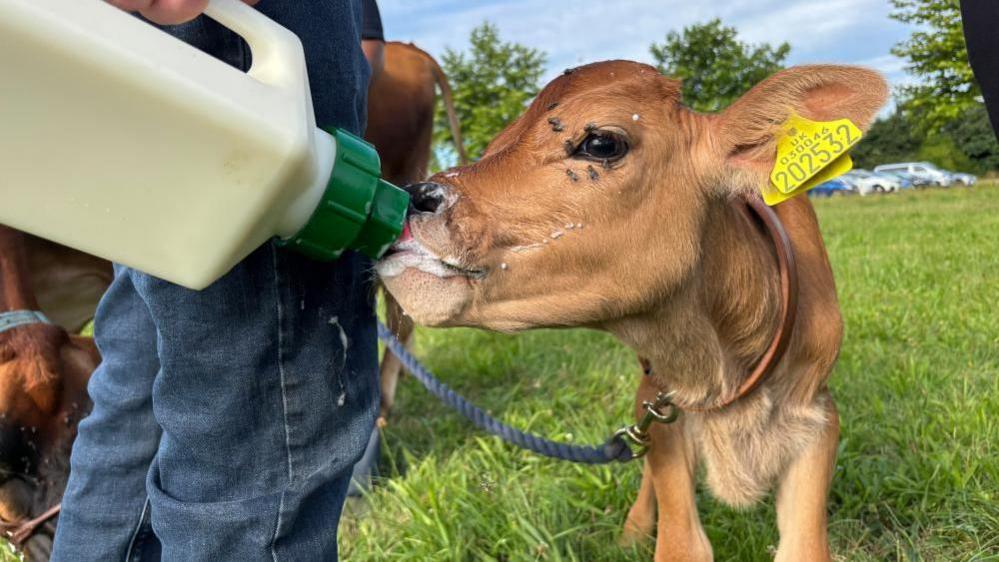'Dairy farming is a 100-hour working week'
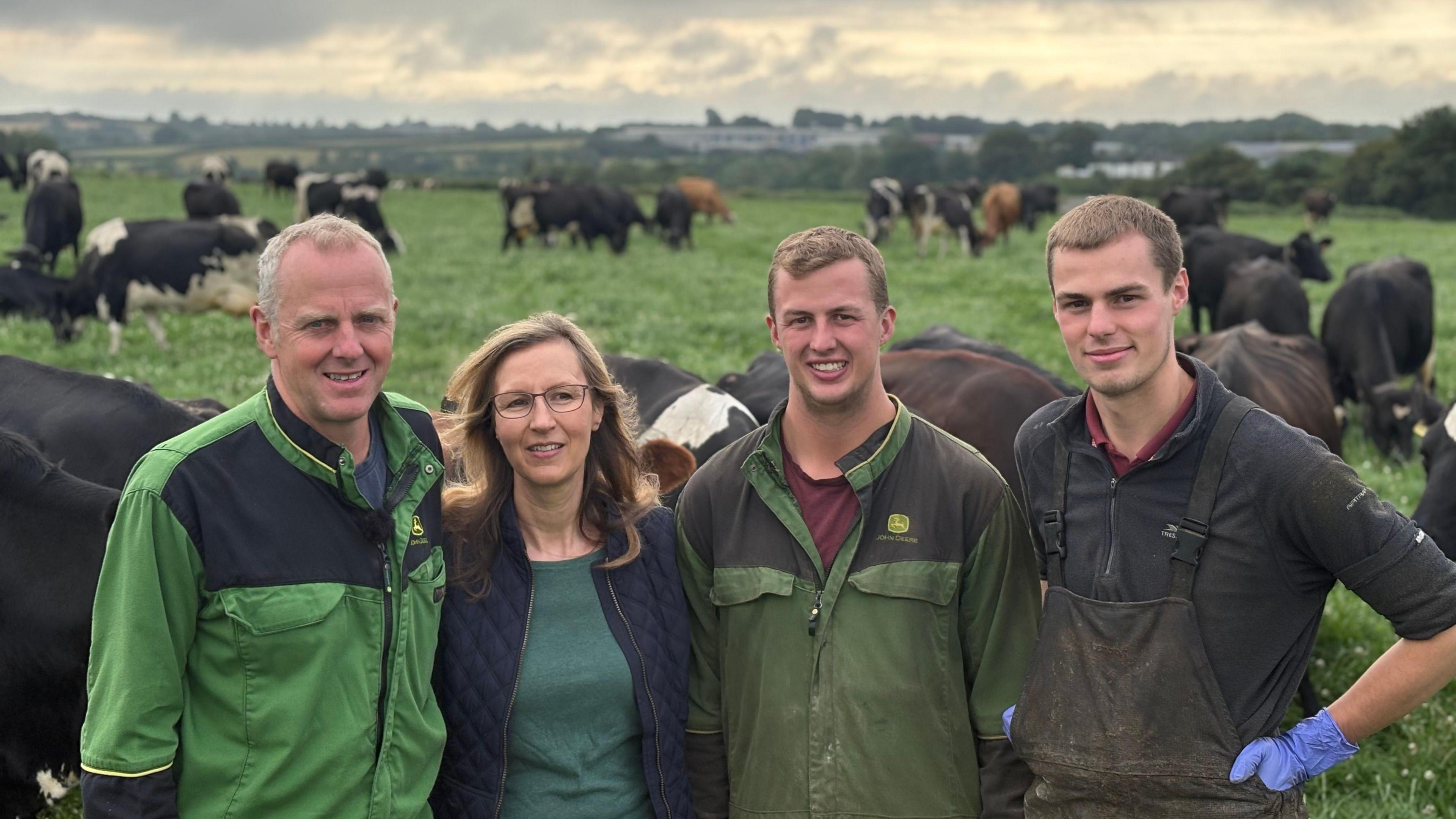
The Jones family produce more than three million litres of milk a year on their farm near Launceston
- Published
As the sun rises a network of paths criss-crossing the farmland is revealed with a line of cows waiting to be led from the pasture to the milking parlour.
It is all part of the daily routine on this 630-acre farm near Launceston on the Devon and Cornwall border run by Andrew Jones with his wife and two sons.
Mr Jones left dairy farming in 2004 after becoming disillusioned by falling milk prices, but he returned in 2022.
"You have to love it," said Mr Jones. "We can work 90 to 100 hours a week."
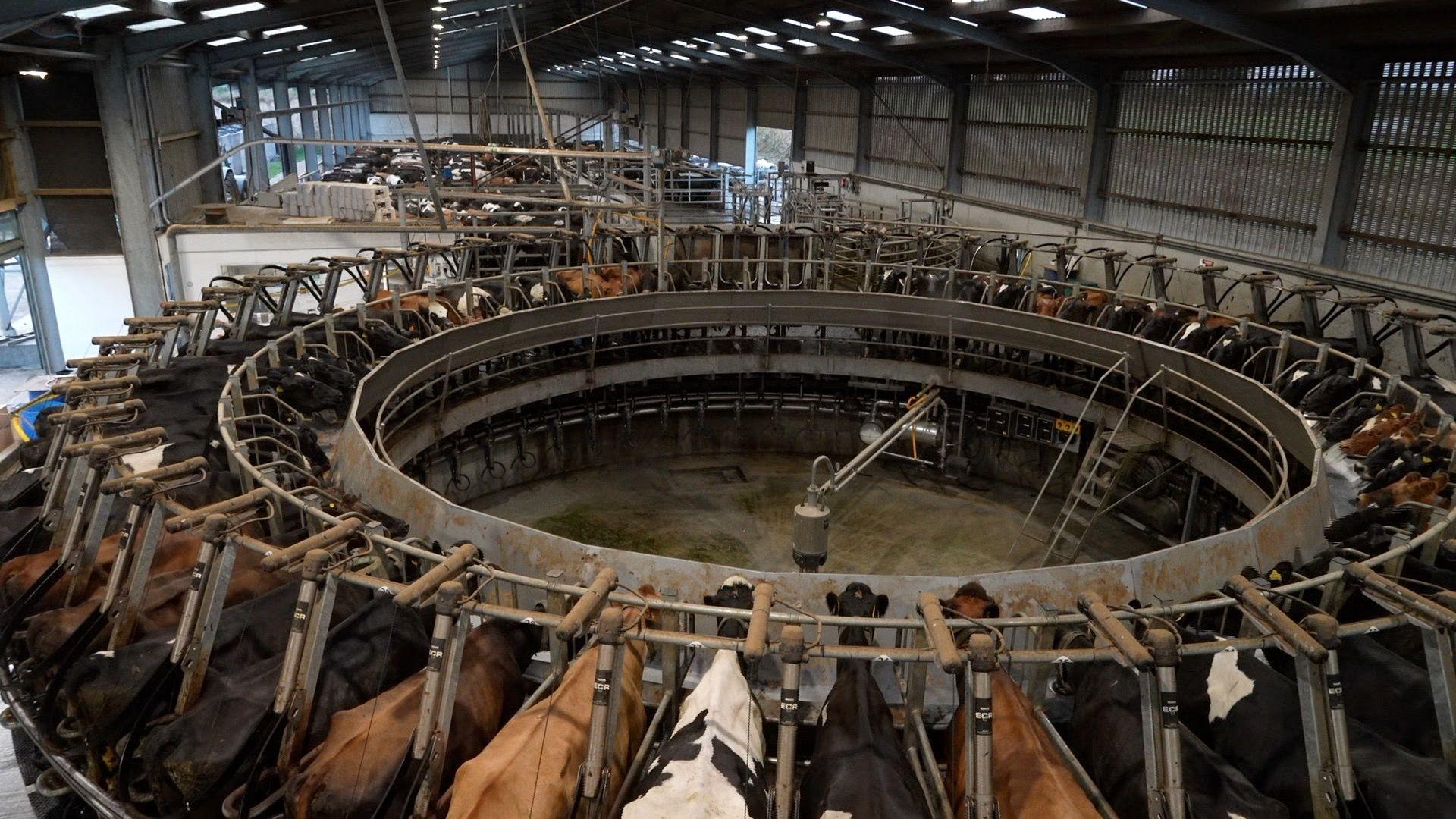
The farm uses a rotary parlour to milk the cows twice a day, every day
Milking takes place twice a day every day on the Jones' farm, including Christmas Day.
With his two sons working at the farm and subsequent improvements in the price of milk, Mr Jones said returning to dairy after rearing beef for 18 years "felt like the right thing to do".
"We appreciate living where we do," he said.
"It's seven days a week. but it's a process that we really enjoy.
"Our main focus is how we make this farm work and how we look after the cows.
"We wanted to invest in something that we felt was right for this farm."
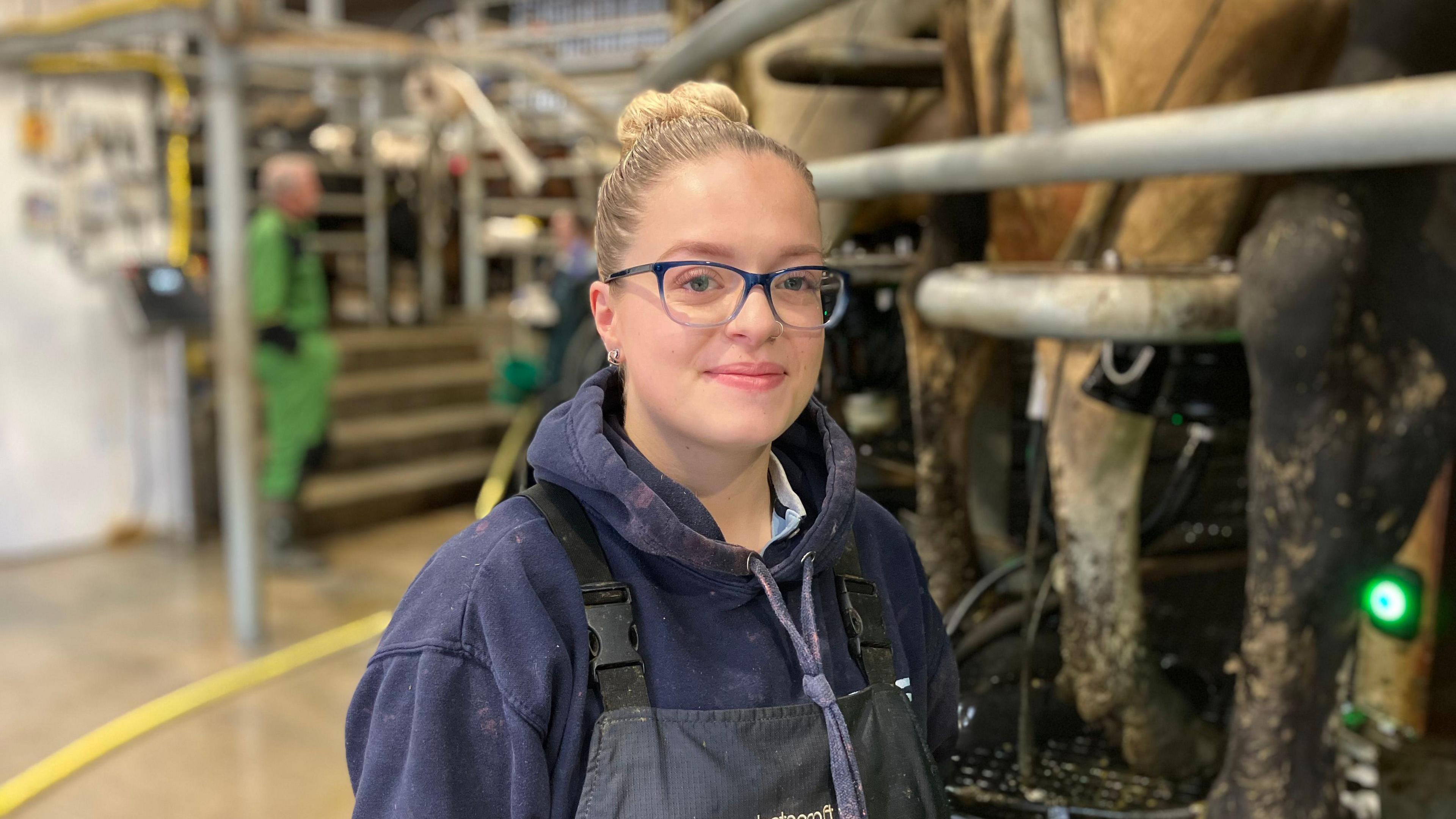
"You do it because you love it," said Emma Curtis
Over in the milking parlour, operations are running like clockwork.
Milker Emma Curtis, 20, who is helping to operate the equipment and keep things on track, is similarly passionate about the industry.
"People can't believe it," she said.
"They're like, 'You milk cows twice a day? Every day? You get up early? How do you do it?'
"You do it because you love it."
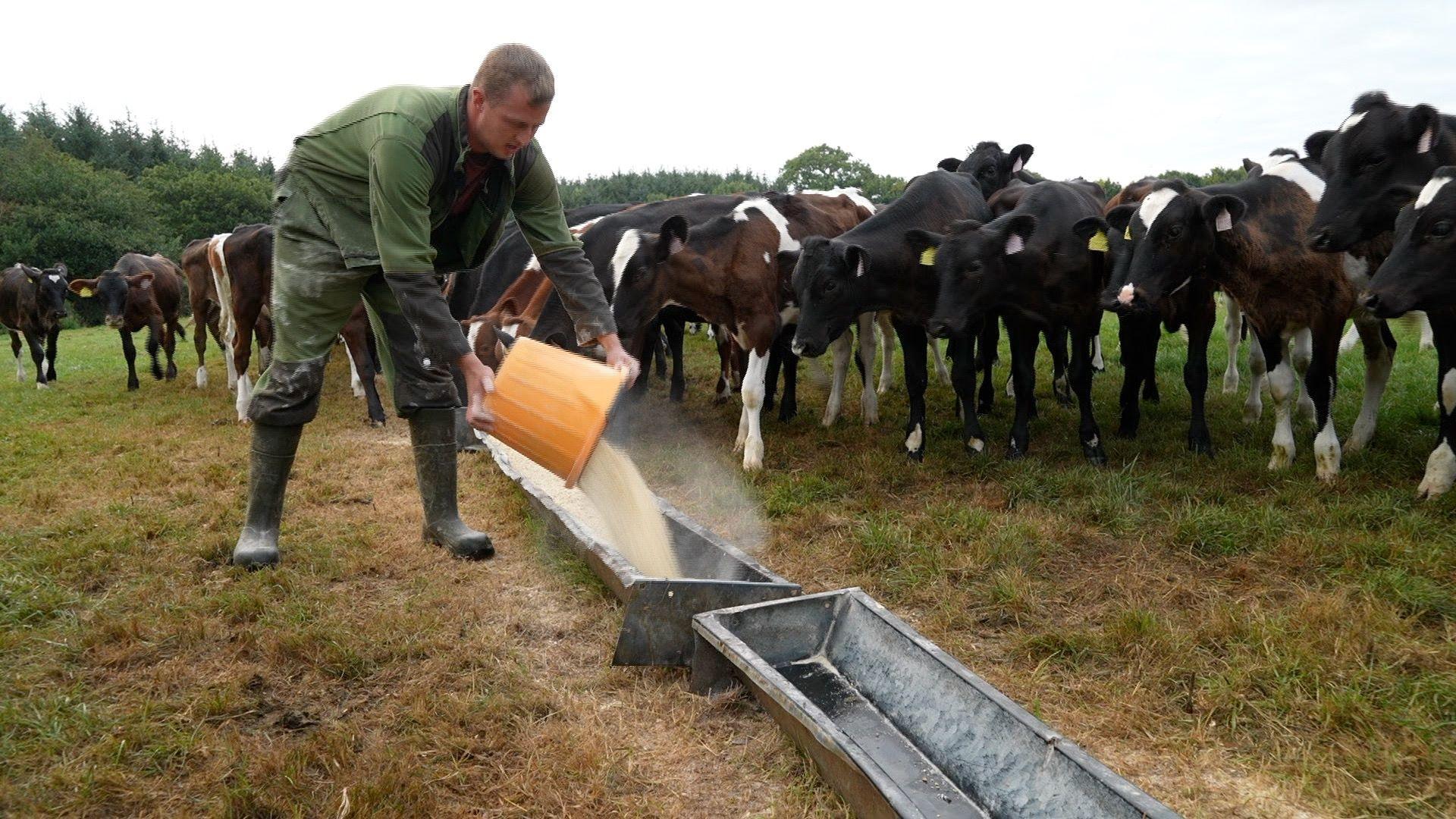
Harvey Jones, 25, has returned to work on the family dairy farm
So far, 2025 has been challenging for dairy farmers in parts of England, after a very dry spring.
Agriculture and Horticulture Development Board statistics suggest farmers are continuing to leave the industry in the South West and nationally.
In April, the data suggests there were 1,107 dairy producers in Devon and Cornwall.
That compares to 1,223 in April 2022.
With 740 dairy producers, Devon has more than any other county in England or Wales, according to the data.
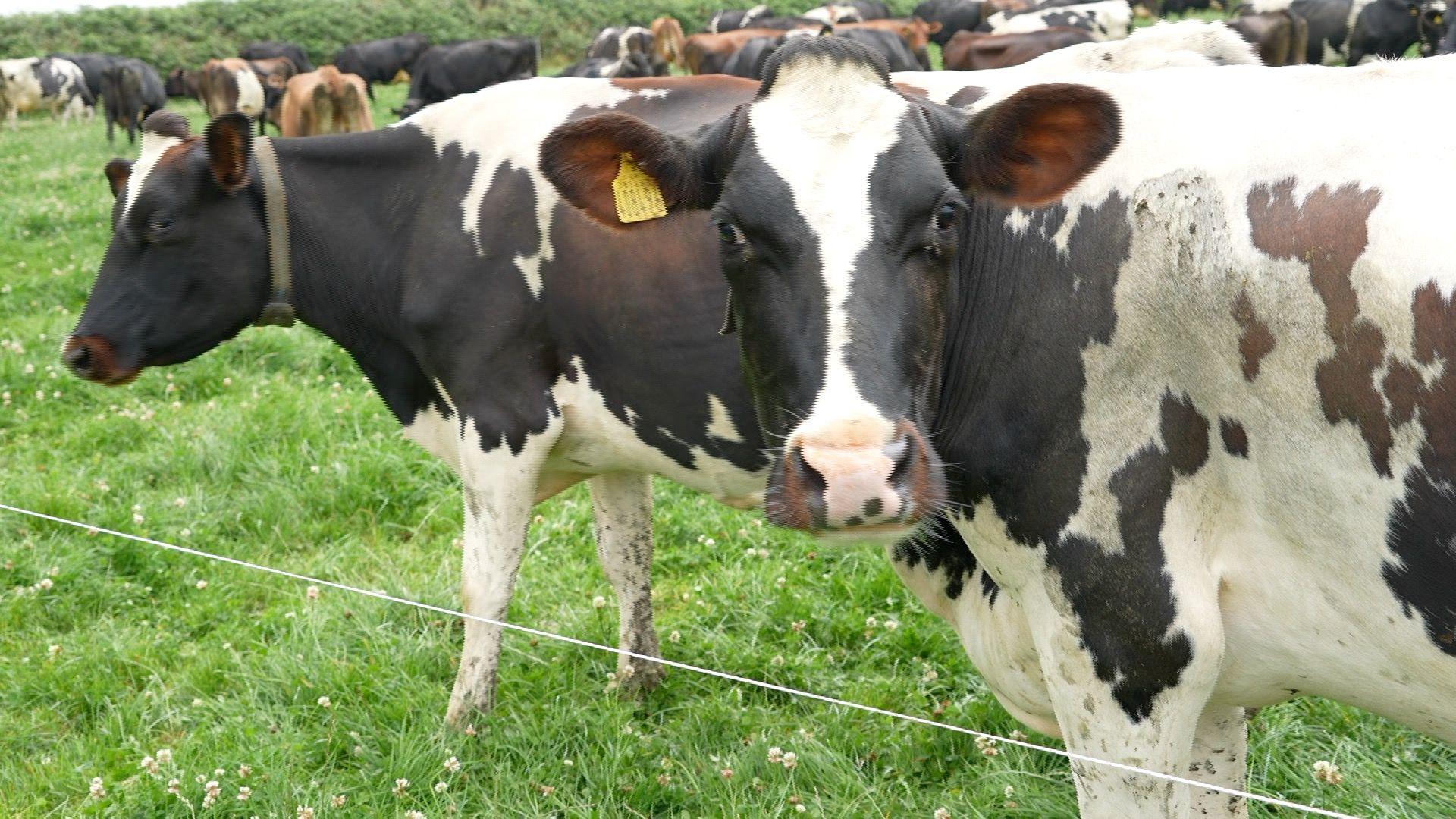
There are about 450 cows on the Jones' farm near the border between Devon and Cornwall
The National Farmers Union (NFU) said the British dairy industry was enjoying "increasing global demand" but it was under threat from "significant inflationary pressures" and prices that are below the cost of production.
It said new industry-wide regulation on contracts would support "support fairer, more transparent and accountable supply chains"
"But obviously regulation isn't a silver bullet," it said.
"With increasing global demand for British dairy, we know that the long-term future is bright for our sector – and to ensure we maximise this potential, it's imperative that government continues to work with us to ensure we have the right environmental, regulatory and trade framework in place to support the production of high quality, nutritious and sustainable food."
A spokesperson for the Department for Environment, Food & Rural Affairs said: ''The UK's resilient and productive dairy industry is our largest farming sector, with UK milk production remaining stable as dairy farm businesses expand.
"From July this year, new regulations to ensure transparency have applied to dairy contracts which will help make supply chains fairer for farmers."
For Mr Jones, dairy farming is worth the toil.
"As long as milk prices are kept at a sustainable level, the numbers add up for us on our family farm," he said.
"We're producing a product that's is second to none and the demand for milk is strong, so I think there is a good future in dairy farming."
Follow BBC Cornwall on X, external, Facebook, external and Instagram, external. Send your story ideas to spotlight@bbc.co.uk, external.
Related topics
- Published14 July
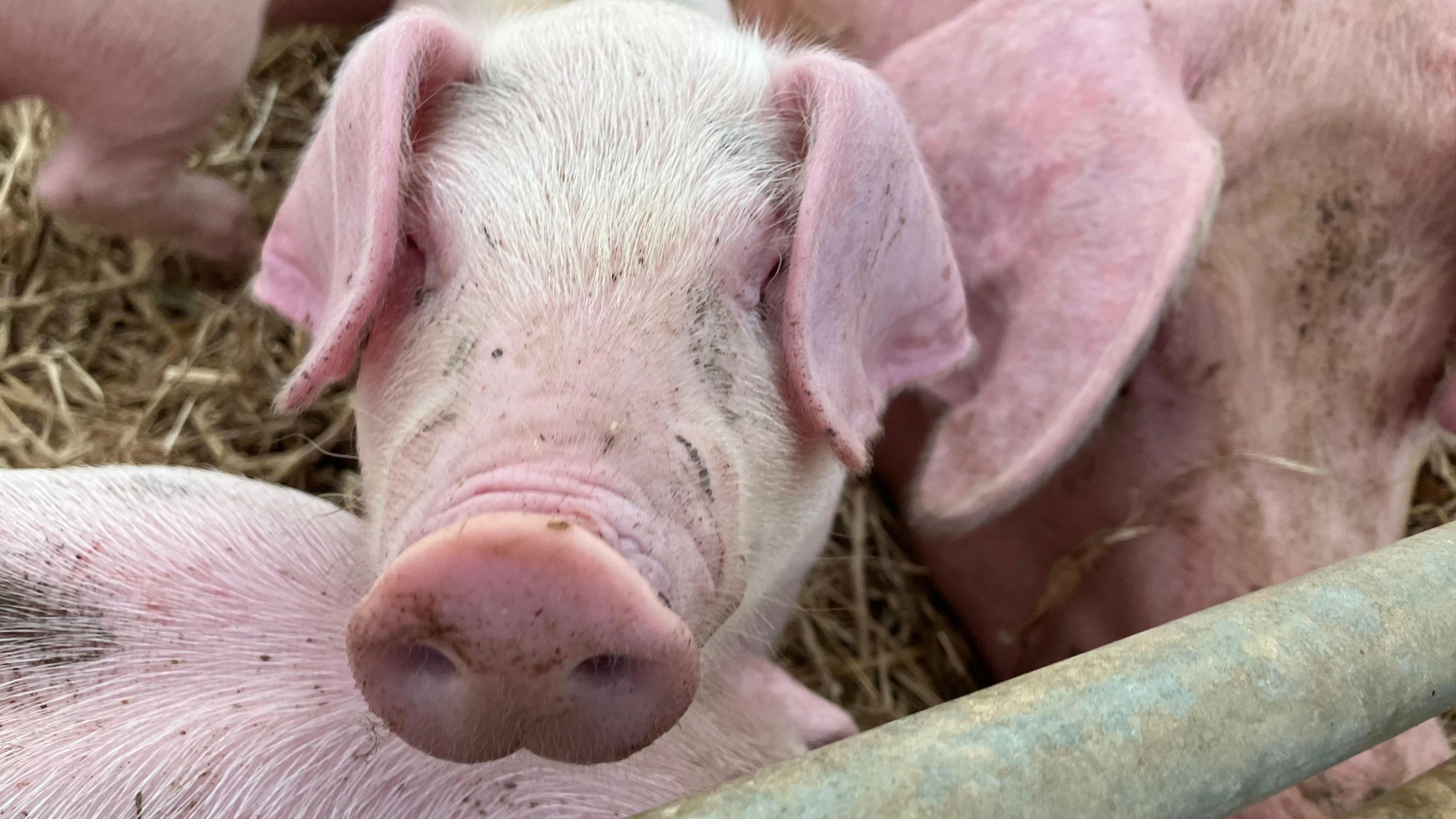
- Published5 June
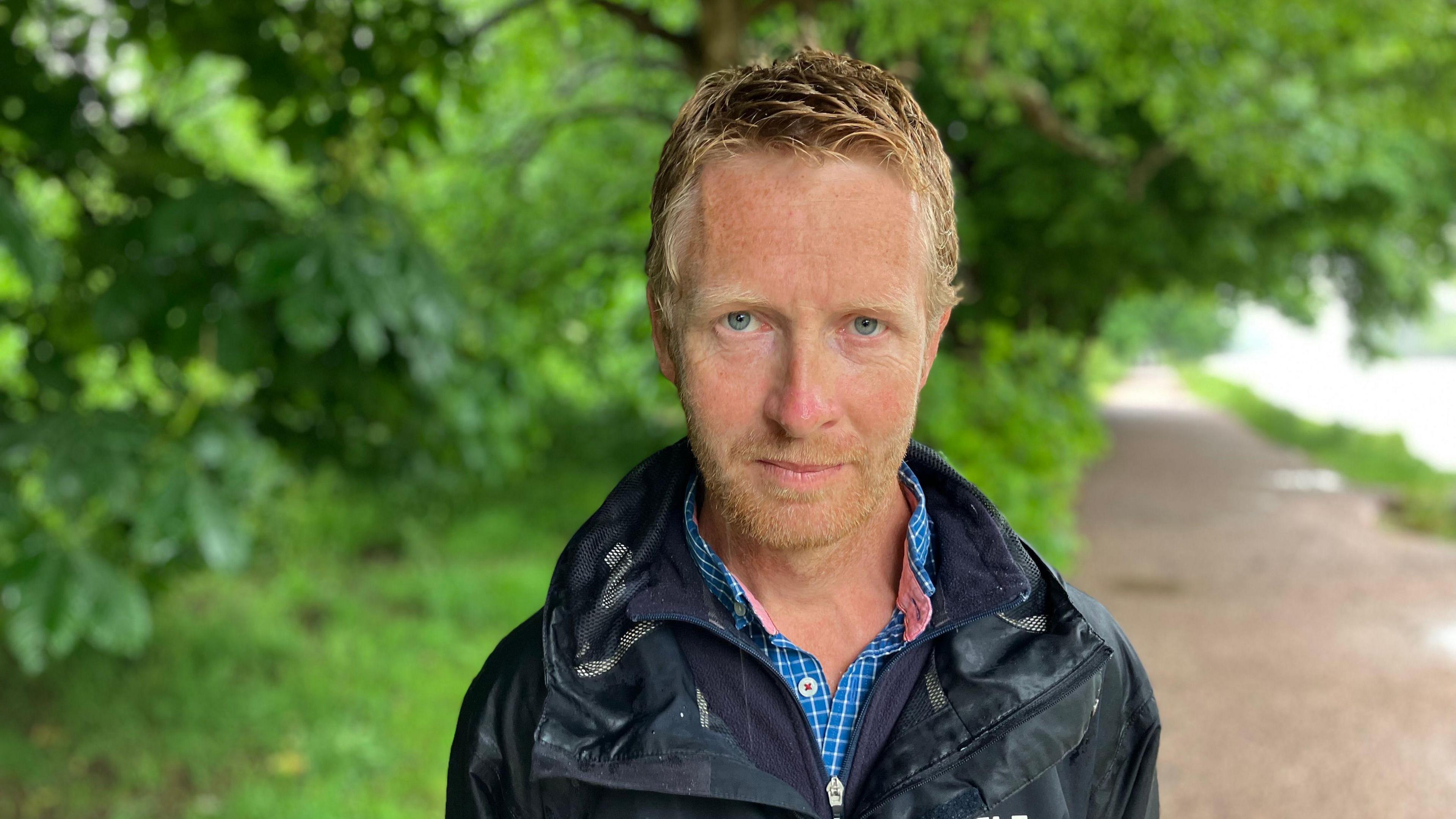
- Published30 November 2024

